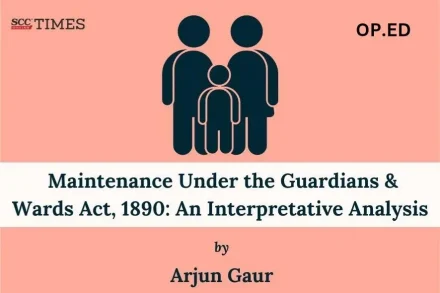
Code of Criminal Procedure


Bombay HC refuses to continue monitoring the murder investigation of CPI leader Govind Pansare; directs Trial Court to expedite hearing
“According to us, only for the purpose of arrest of absconding accused, continuous monitoring of the further investigation by this Court under Article 226 of the Constitution of India is not necessary.”
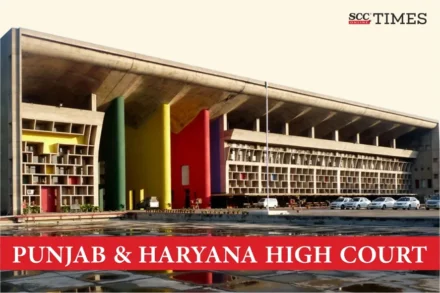
[Devotees Castration Case] | Punjab and Haryana HC sets aside Order by SJM directing CBI to produce documents requested by Ram Rahim
The matter was remanded to the Special Judicial Magistrate for a fresh decision regarding the applications preferred by Ram Rahim and the doctor in view of the present Order.
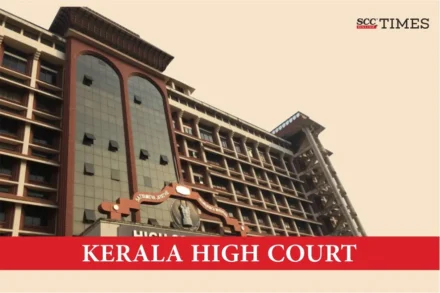
‘Frivolous application filed for delaying disposal’: Kerala HC rejects actor Sunil’s plea to recall two expert witnesses for cross examination in 2017 actor assault case
“A prosecution witness, who was examined already, cannot be recalled by exercising the powers under Section 233 CrPC. However, such an exercise can be done under Section 311 CrPC at any stage, including that of Section 233, provided all the requirements and parameters of Section 311 are otherwise satisfied.”

‘No law fixes responsibility on officers to verify age of arrestees’: Kerala HC issues directions to prevent mistaken trial of juveniles as adults
“It is most unfortunate that the convicts had to undergo incarceration in prison for a period of about 14 years due to the failure of the authorities concerned to take note of the fact that they were juveniles at the time of the commission of the crime.”

Rivalry between parties can’t override prima facie evidence of overt acts captured on CCTV: Kerala High Court refuses to quash POCSO case
“It is true that, when the parties are in rivalry, false implication of one among them in a serious crime would be resorted to wreak vengeance and to see the obliteration of the opponent. At the same time, there may be occurrences otherwise also.”

Kerala High Court quashes domestic violence case filed by mother-in-law against parents of daughter-in-law for lack of domestic relationship
“When the proceedings under the DV Act are found to be an abuse of process of Court, in order to secure the ends of justice and to save the parties being put into a frivolous litigation, the High Court must exercise its power under Section 482 of CrPC or under Section 528 of BNSS, otherwise abuse of process of Court would not be addressed or prevented”.

‘Men have pride and dignity too’: Kerala HC grants bail to actor-director Balachandra Menon in 2007 sexual assault case
“Based on the statement of a lady, that also after 17 years, the present case is registered. It is true that the investigation is going on. But, everybody must remember that the pride and dignity is not only to woman, but to men also.”

‘Under Muslim Law, custody of children below 7 years shall be with their mother’: Bombay HC
The Court considered the aspect of better company and care, wherein it evaluated the parties’ living arrangements, schedules and availability to cater to the children. The husband due to his business engagements could not have catered to the needs of the children, unlike the wife who was not working at stayed at home.

Delhi HC grants bail to 21-year-old alleged Manjit Mahal Gang member, after 8 years of custody for doctor’s murder
“The Court said that even though the petitioner’s conduct in jail was ‘unsatisfactory’, he had already been punished for the offences committed in the prison and had already atoned for them.”

‘Annoyance to others’ a prerequisite to invoke offence under Section 294 of IPC; Allahabad HC quashes criminal case
The issue of “obscenity or indecency per se” will not arise until or unless there is evidence on record to see that a person at a given time witnessing particular obscene act is actually annoyed or not.

‘Detailed analysis of evidence not carried out while framing charge’: Delhi HC upholds order directing framing of charges u/s 506, 509 and 34 of IPC
The Court stated that the only test to be applied at the stage of framing of the charge is whether there is sufficient cause made out by the prosecution to proceed against the accused.

[S. 311 CrPC] Discrepancies in examination and cross examination no ground to recall witnesses: Allahabad HC
“Hindu Marriage Act, 1955 merely provides saptpadi as an essential ceremony of a Hindu marriage and it does not provide that the ceremony of kanyadan is essential for solemnization of a Hindu marriage”
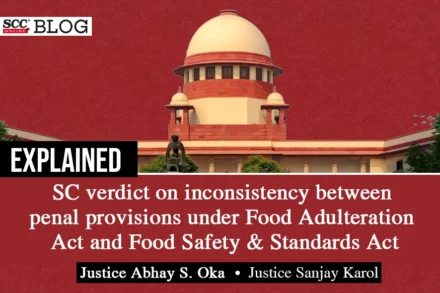
Explained| SC verdict on inconsistency between penal provisions under Food Adulteration Act and Food Safety & Standards Act
“The punishment under PFA and the penalty under the FSSA cannot be imposed on the violator for the same misbranding because it will amount to double jeopardy, which is prohibited under Article 20(2) of the Constitution of India.”
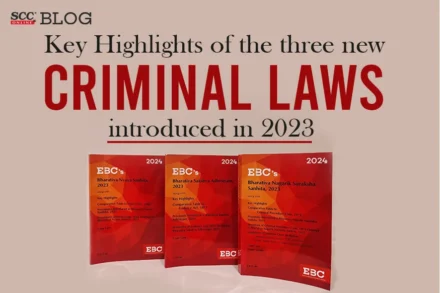
Key Highlights of the three new criminal laws introduced in 2023
The President gave assent on 25-12-2023 to the new criminal laws.
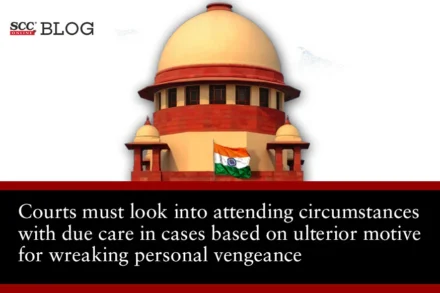
Courts must look into attending circumstances with due care in cases based on ulterior motive for wreaking personal vengeance: Supreme Court
Supreme Court noted that there are multiple FIRs that have been registered over a period, thereby attracting the issue of wreaking vengeance out of private or personal grudge as alleged.
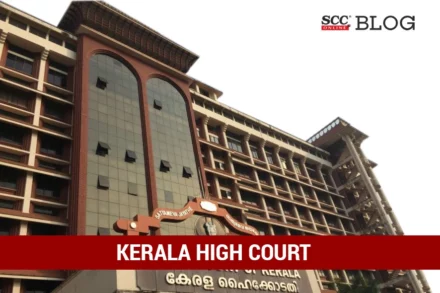
Objective of Section 125 CrPC to ameliorate sufferings of destitute wives, children; technicalities have no place in maintenance cases: Kerala High Court
“The attempt should be to assimilate the required details and reach the correct conclusion at the earliest, rather than mulling over mundane objections.”
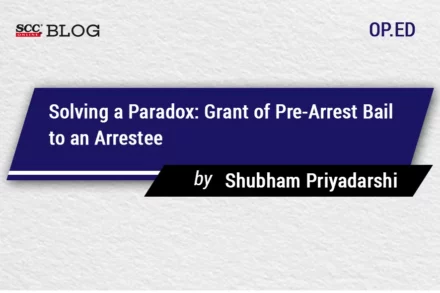
Solving a Paradox: Grant of Pre-Arrest Bail to an Arrestee
by Shubham Priyadarshi†
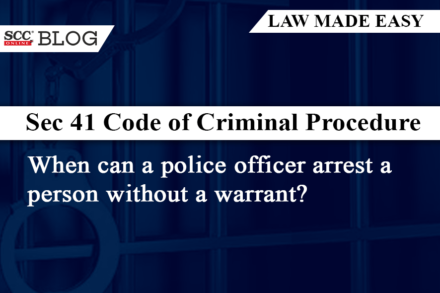
[Sec 41 Code of Criminal Procedure] When can a police officer arrest a person without a warrant?
Can police officers arrest a person without reason? The answer is ‘NO’ and the explanation is provided in the blog below with an attempt to make the law easy and understandable.
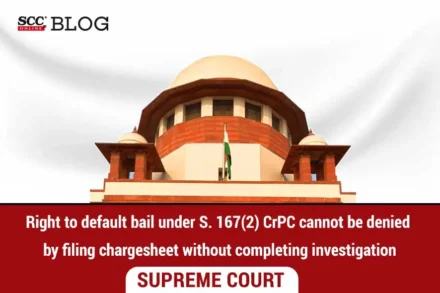
Right to default bail under S. 167(2) CrPC cannot be denied by filing chargesheet without completing investigation: Supreme Court
The right of default bail under Section 167(2) of the CrPC is not merely a statutory right, but a fundamental right flowing from Article 21 of the Constitution of India, observed the Supreme Court.

